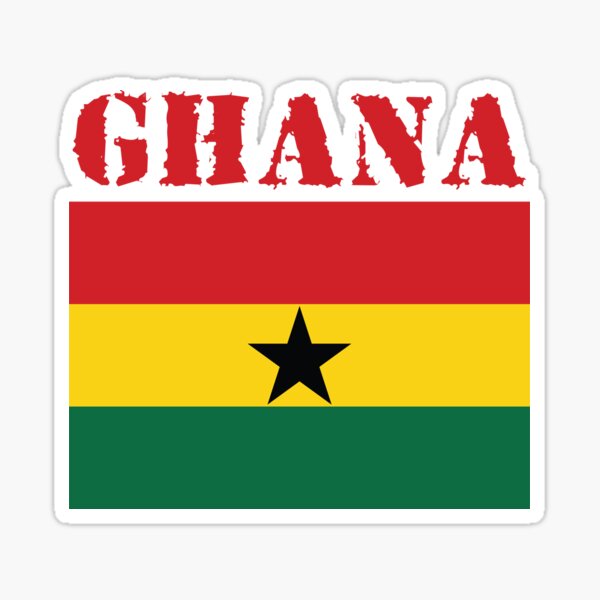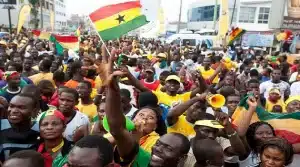Headlines
Ghana Population, Official Language And More.

The Gold Coast region became a protectorate of Great Britain in 1821 after a series of treaties with local rulers. In 1957, it became independent as Ghana under Prime Minister Kwame Nkrumah. Since then, Ghana has had a tumultuous political history with several coups and periods of military rule. However, it has also been a leader in African politics and economics. Today, it is one of Africa’s most stable democracies and has one of its fastest-growing economies.

Ghana
THE POPULATION
Ghana has a population of approximately 31 million people. The country is home to over 100 ethnic groups, with the Akan being the largest. Other major ethnic groups include the Mole-Dagbon, Ewe, and Ga-Adangbe. The official language is English, but many Ghanaians speak other languages such as Twi, Fante, and Ga.
THE LANDMARK
Ghana is known for its diverse landscapes and natural landmarks. One of the most famous landmarks in Ghana is Cape Coast Castle, a UNESCO World Heritage site that was used as a slave trading post during the transatlantic slave trade. Other notable landmarks include Kakum National Park, Lake Volta, and the Kwame Nkrumah Memorial Park.
THE OFFICIAL LANGUAGE
The official language of Ghana is English. It is used in government, education, and business. However, many Ghanaians speak other languages such as Twi, Fante, and Ga.
THE CULTURE
Ghana has a rich cultural heritage that is reflected in its music, dance, art, and festivals. The country is known for its traditional drumming and dancing, which are often performed at festivals and other cultural events. Some of the most popular festivals in Ghana include Homowo (celebrated by the Ga people), Aboakyir (celebrated by the people of Winneba), and Bakatue (celebrated by the people of Elmina).
THE ECONOMIC STABILITY
Ghana has one of the fastest-growing economies in Africa. The country’s economy is largely driven by agriculture, mining, and oil production. In recent years, Ghana has made significant progress in reducing poverty and improving access to education and healthcare. However, there are still challenges facing the country such as high levels of unemployment and income inequality.
THE GDP
Ghana’s Gross Domestic Product (GDP) was $70.2 billion in 2020. The country’s economy is largely driven by agriculture, mining, and oil production. In recent years, Ghana has made significant progress in reducing poverty and improving access to education and healthcare. However, there are still challenges facing the country such as high levels of unemployment and income inequality.
THE CURRENCY
The currency of Ghana is the Ghanaian cedi (GHS). As of October 2023, the exchange rate is approximately 1 USD = 6.2 GHS .
THE FOOD
Ghanaian cuisine is diverse and flavorful. Some popular dishes include:
- Jollof rice: A one-pot dish made with rice, tomatoes, onions, and spices.
- Banku: A fermented corn and cassava dough that is often served with soup or stew.
- Fufu: A starchy dough made from cassava or yams that is often served with soup or stew.
- Kelewele: Spicy fried plantains.
- Red-red: A bean stew made with black-eyed peas and palm oil.
MAJOR CITIES
Some of the major cities in Ghana include:
- Accra: The capital city of Ghana and home to over 2 million people.
- Kumasi: The second-largest city in Ghana and the capital of the Ashanti region.
- Tamale: The third-largest city in Ghana and the capital of the Northern region.
MAJOR AIRPORTS, SEAPORTS AND SCHOOLS
Some of the major airports in Ghana include:
- Kotoka International Airport (ACC): Located in Accra, it is the largest airport in Ghana and serves as a hub for several airlines.
- Kumasi International Airport (KMS): Located in Kumasi, it is the second-largest airport in Ghana.
Some of the major seaports in Ghana include:
- Tema Port: Located near Accra, it is the largest port in Ghana and serves as a gateway to West Africa.
- Takoradi Port: Located in Takoradi, it is the second-largest port in Ghana and serves as a hub for oil exports.
Some of the major schools in Ghana include:
- University of Ghana: Located in Accra, it is the oldest and largest university in Ghana.
- Kwame Nkrumah University of Science and Technology: Located in Kumasi, it is one of the leading universities in West Africa.
- University of Cape Coast: Located in Cape Coast, it is known for its strong programs in education and business.





